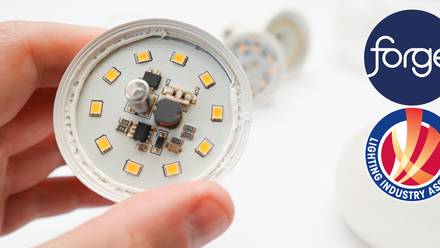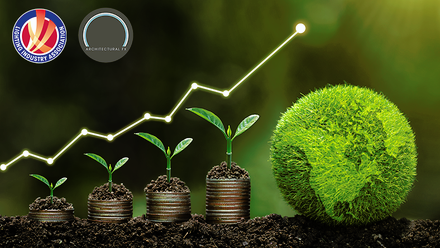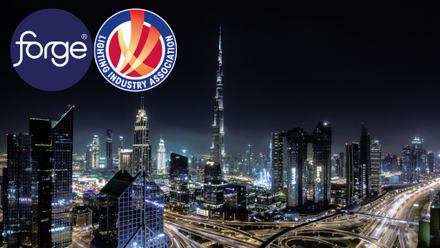The LIA NextGen 2025 Winner Bright Ideas: Meet Harry Ford
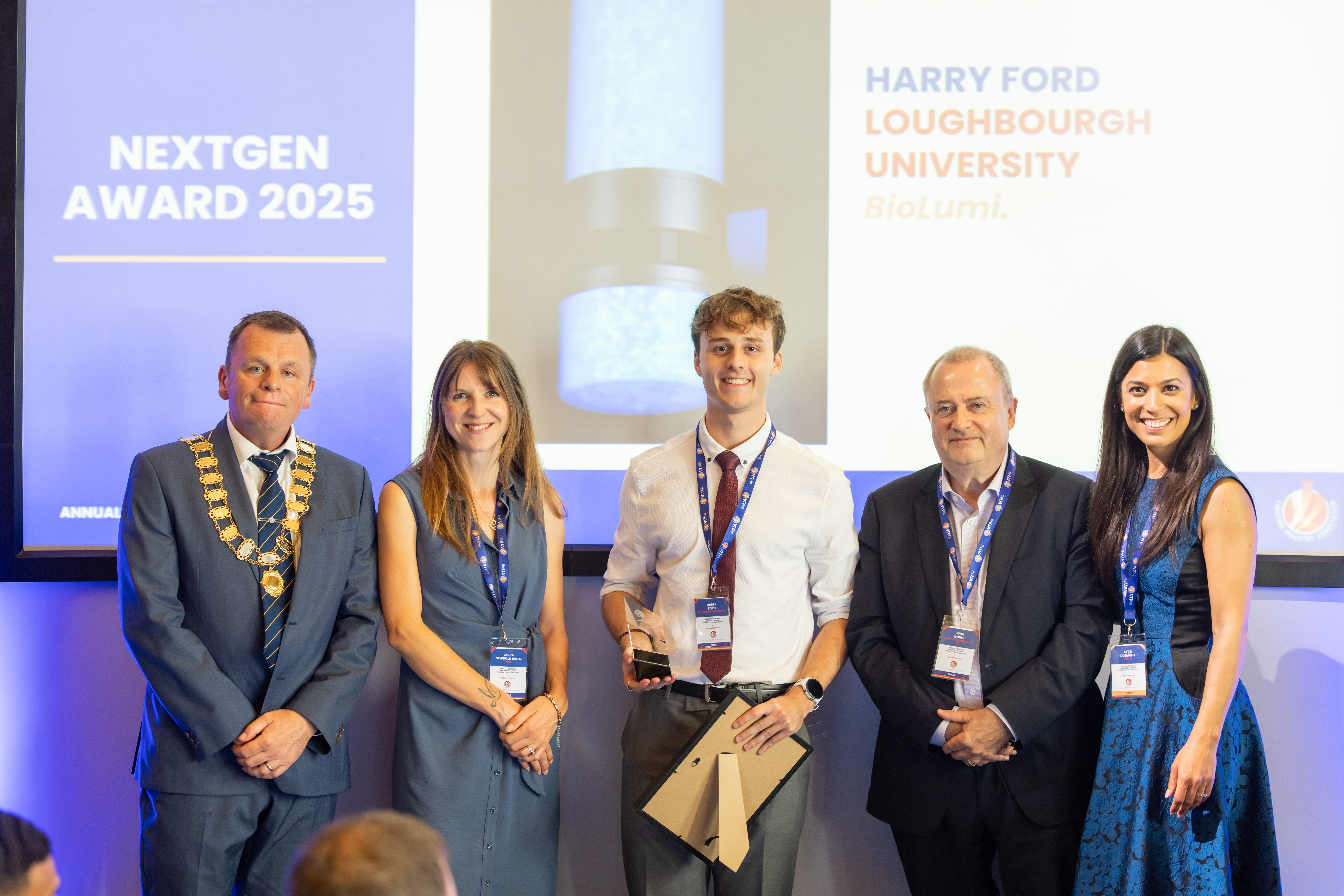
Congratulations on winning the NextGen 2025 Award! How did it feel to have your work recognised by industry leaders while you’re still at university?
It was amazing. What stood out most what just how many people thought the idea was cool and novel. It was something I came up with in my uni bedroom, worked on for a week ‘sprint’ challenge, and then left, so seeing it have that kind of impact was pretty incredible.”
Can you tell us a bit about BioLumi. What sparked the idea, and what need or challenge were you hoping to address?
I initially started thinking about fish because there was an image in the presentation by Holophane that sparked something. That led me to researching fish tanks, lighting, and then bioluminescence. I discovered ways to simulate it without harming plankton, which got me hooked. Originally, I was torn between two briefs, but my housemates kept saying I ‘lit up’ when I spoke about this one, so I ran with it.
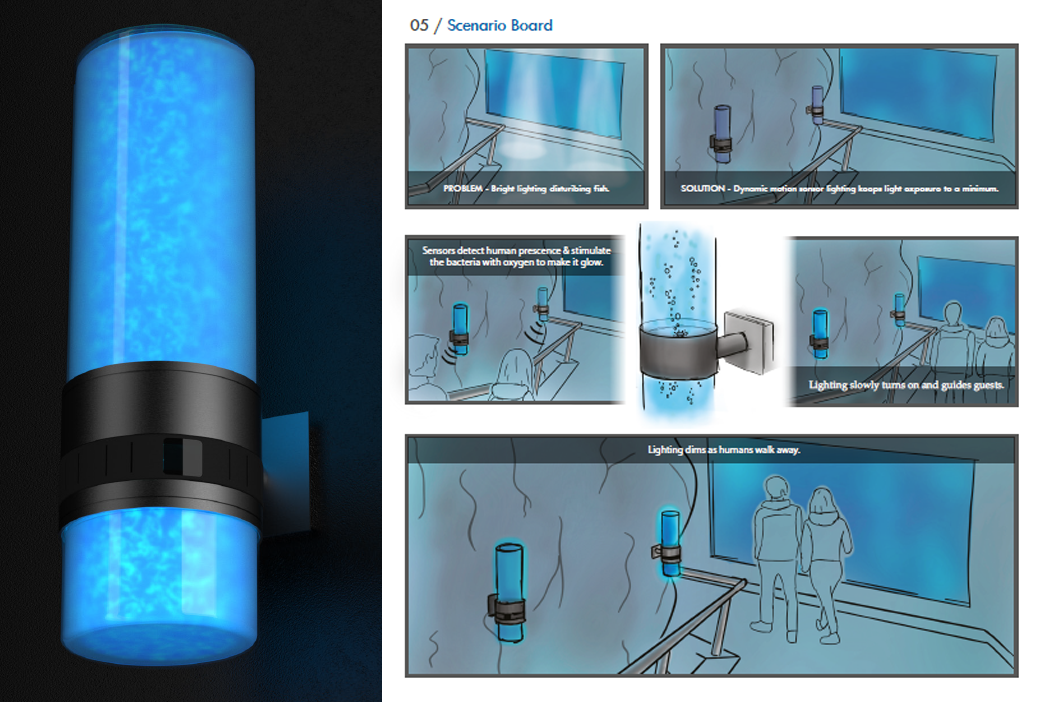
Which part of the design process did you find most rewarding, and was there a moment you felt especially proud of how you tackled the challenge?
I realised I was more excited about this project because it wasn’t the typical lighting route, not just making a light look cool, but thinking about how the light is produced. That shift, away from standard LED to something entirely different, was what made it exciting for me.
Did sustainability or ethical design play a role in how you approached BioLumi, especially given the focus on wildlife impact?
Yes, definitely. Initially, I was looking at the plankton that create bioluminescence in places like the Maldives, but keeping them in small tanks raised ethical concerns. Finding bacteria that could do the same thing without harming marine life removed that barrier. It felt exciting to overcome that hurdle and still have an interesting concept.
What was it like presenting your concept live at The LIA Annual Lunch, knowing the audience would be voting on the winner?
Honestly, I wasn’t too nervous because I’d had experience talking about my ideas at the Loughborough Design Show. Plus, I loved the project so much that it was fun to explain it. People tended to get excited when they heard about it, it wasn’t just “here’s a light to light up a space,” but something more unusual. That made it easy to talk about.
Did any feedback from the attendees surprise or inspire you?
One moment stood out, someone came up to me and asked if I had a prototype because they were really interested and had worked on similar projects before. It made me realise that uni projects don’t have to stop at uni, they can actually lead somewhere.
You’re now in your final year, do you see yourself moving into lighting or product design professionally after university?
I love coming up with concepts and making them real, whether that’s in lighting or elsewhere. I’d like to keep exploring projects like this and see where they lead, depending on time and resources.
What excites you most about the lighting or design sector, and where to you think a graduate like you could make the biggest impact?
I’m exited by the challenge of creating ideas that break away from the norm. I’m interested in doing things differently, not just making something pretty, but pushing the boundaries of what lighting can do. I know that might sound critical, but I think the sector is ready for fresh thinking.
Are you open to exploring opportunities in lighting after graduation, and what type of roles, projects, or companies would excite you most?
Absolutely, if it’s the kind of role where I’m challenged to come up with new ideas, not just more of the same. I’d love to be part of projects that flip things on their head and explore new territory, that’s what motivates me.
Finally, what advice would you give to next year’s students thinking about entering the NextGen Award? Any tips or encouragement?
Take inspiration from anywhere. For me, it was a random image of a fish that sparked the idea. Don’t be afraid if your project might not fully work, if it has potential, go for it. It’s a short project that can really make your portfolio stand out, rather than just adding another safe, and typical project.
Christopher Wilkes, Technical Manager, Holophane Europe Ltd, commented,
“The LIA over the last few years has been working in partnership with universities around the UK to increase the profile of the lighting industry in the minds of those at the start of their working life. If we can get those people excited about our wonderful and diverse industry, we can then increase the potential talent pool seeking out our industry that lighting businesses can in turn, employee.
Harry Ford was one of our worthy winners from The LIA’s Loughborough University Design Challenge, that runs at the start of each calendar year. He then completed against other winners from that academic year to get industry votes at The LIA Annual Lunch, which he very deservedly won. As a previous Loughborough graduate, I am passionate about actively supportive these types of talent building initiatives."
BIO:
Harry Ford is a third-year product design student and the creator of BioLumi, an award-winning concept that uses bioluminescent bacteria to provide aquarium lighting with minimal impact on deep-sea fish behaviour.
As the NextGen 2025 Award winner, Harry is keen to explore graduate opportunities in lighting and sustainable design. Interested organisations can connect with Harry via LinkedIn here.

